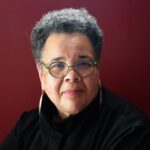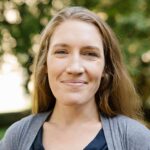Literature
Syllabi - Topic: Literature - 23 results
Select an item by clicking its checkboxA 2008 course by Thomas Leininger and Tom Reynolds at Regis University considers "modern Catholic literature" from a variety of perspectives.
A 2010 course by Ken Frieden at Syracuse University examines the "representation of Israelis and Palestinians in literature and film, focusing on how each group views the other."
A 2004 course by Annette Reed at McMaster University analyzes "stories from the Hebrew Bible, âApocrypha,â and New Testament from the perspective of their narrative artistry, approaching biblical literature as literature."
A 2012 course by Sean Hayden at Louisville Presbyterian Theological Seminary uses Wendell Berry's "poems, fiction and essays . . . . [to] build up a perspective on the meaning of life with depth and coherenceâa philosophy of life" around selected theological themes.
A 2013 course by Jack Hawley at Columbia University on selections of the poetry attributed to Surdas and the "genesis and development of the Sur tradition."
A 2011 course by Richard Marks at Washington and Lee University approaches "20th-century authors writing in Yiddish and Hebrew . . . as literary expressions of religious themes and as responses to the historical and religious crises of modern Jewish life in Europe, the United States, and Israel."
A course by Kevin Lewis at the University of South Carolina aims at "critically appraising meaning and method in films meant to stir reflection on potent material."
A 2001 course by Darren Middleton at Texas Christian University "examines how the figure of Jesus and the symbol of Christ has been appropriated by recent creative writers and filmmakers."
A 2009 course by Emilie Townes at Yale Divinity School is "an examination of the ways in which metaphors function at the intersections of various forms of oppression."
A 2002 course by Darren Middleton at Texas Christian University aims to "examine and assess the major beliefs and practices of five world faiths [Hinduism, Judaism, Buddhism, Christianity, and Islam] through a careful, critical study of selected world fiction."
A course by Sarah Rivett at Princeton University "charts how a supernatural domain . . . Persists throughout American literary history."
A 2012 course by Molly Jensen at Southwestern University approaches American religion through novels and "considering distinctive religious expressions of geographically- and culturally-diverse communities."
A 2000 course by Alan Altany at Marshall University uses "journals, fiction, and web exploration . . . (to access) the spiritual insights of various persons as they portray their search for and experience of what religions call the sacred" with special attention to the concept of place.
A 1999 course by Ann Matter at the University of Pennsylvania "explores some ways in which religious ideas and practices appear in works of literature from different cultures" with a focus on the modern period and the Christian tradition.
A 2010 course by Ann Grodzins Gold at Syracuse University uses stories "to learn about several different religious worlds" and particular issues that cut across them.
A 1998 course by Lissa McCullough at New York University explores religious themes in great works of Western literature.
A 2008 course by Joseph Edelheit at St. Cloud State University "offers a survey-overview of Jewish literature in the 20th century."
A 2010 course by Ken Brashier at Reed College aims "to learn the mechanics of translation and to develop an awareness of what it means to transform the words of one culture to that of another."
A 1999 course by Darren Middleton at Texas Christian University explores "construals of God through a combination of novels, short fiction, and memoir extracts, on the one hand, and through a sustained reflection on Jack Miles's literary study of the God of the Hebrew Bible, his God: A Biography, on the other hand."
A 2002 course by Amir Hussain and Crerar Douglas at California State University, Northridge, includes "a close reading of Blake's biography . . . [and] the art and poetry that he created."
A 2016 course by James McGrath at Butler University explores "big questions" through the lens of religion and science fiction.

